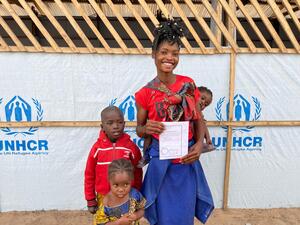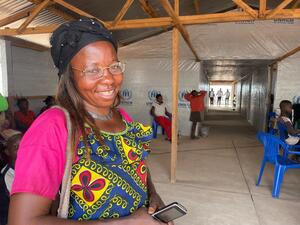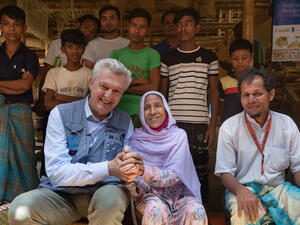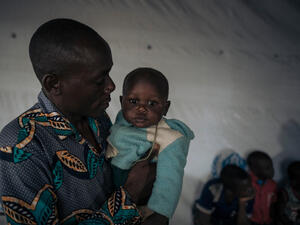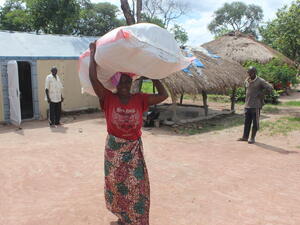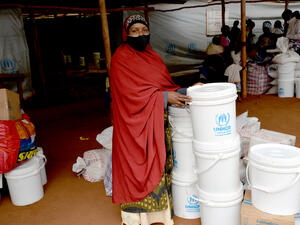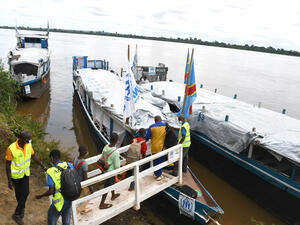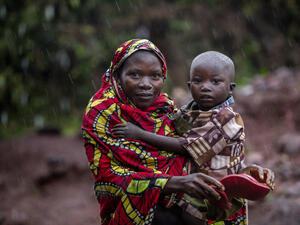UNHCR mobilizes resources to deal with massive return of refugees
UNHCR mobilizes resources to deal with massive return of refugees
The United Nations High Commissioner for Refugees mobilized on Saturday all available staff and resources to meet the needs of Rwandan refugees returning to Rwanda in the largest and swiftest homeward movement of refugees in memory.
"I am elated with the news of this repatriation. It is difficult to express what I feel seeing all these refugees heading home," High Commissioner Sadako Ogata said in a statement issued in Geneva. "We have been planning and waiting for this to happen for two years. Now that they are coming in such numbers we are putting additional resources on the ground. We are determined to help them resume their normal lives."
By nightfall on Saturday, some 200,000 Rwandan refugees had returned to Rwanda since they began flooding into the Rwandan border town of Gisenyi at mid-morning Friday from the Mugunga and Lac Vert camps about 25 kms west of Goma. Field officers said the rate of arrivals Saturday was 12,000 per hour.
Another 300,000 refugees are reported to be on road, all heading toward Rwanda.
The Goma region hosted more than 715,000 of the 1.2 million refugees in eastern Zaire before fighting broke out in the area two weeks ago. Another 500,000 refugees are scattered in the Bukavu and Uvira regions. UNHCR is attempting to gain access to them.
Because of the massive numbers of arrivals in Gisenyi, the authorities have abandoned screening at the border, saying this will be conducted at the communes.
Emergency aid is provided to the arrivals, but UNHCR's regular repatriation package consisting of a two-month food from the World Food Programme, blankets, kitchen sets and plastic sheeting will now be distributed at the returnees' communes. Buses and trucks have been moving returnees to their final destinations. However, most of the arrivals come from the prefectures of Gisenyi and Ruhengeri and are returning on foot. Four way stations were established Saturday along the return routes, providing food, water and emergency medical care.
Rwandan President Pasteur Bizimungu called the High Commissioner Friday night to thank UNHCR for its efforts in encouraging and helping the refugees to return. He reiterated full cooperation of the Rwandan government in the speedy processing of the returnees. Ogata told Bizimungo UNHCR will do everything possible to support the repatriation and reintegration of the refugees.
UNHCR has tried to achieve large-scale repatriation on a voluntary basis since shortly after the exodus into eastern Zaire in July 1994. UNHCR and its NGO partners have available stocks in Rwanda for 450,000 people. UNHCR is moving more urgently needed supplies from Uganda.
Ogata formed emergency repatriation operation teams composed of 23 veteran field and protection officers to reinforce its staff in Rwanda.
The High Commissioner said the big challenge ahead of UNHCR - and the international community - is the reintegration of the refugees. This will involve community development, initial rehabilitation, the security of returnees and recovery of their property. Human rights monitors will work closely with repatriation teams.
Ogata welcomed the UN Security Council resolution on Friday which authorizes the deployment of a multinational force to facilitate the delivery of humanitairian aid and the return of refugees. She said there still are hundreds of thousands of refugees that must be reached in eastern Zaire. There also are about 600,000 Rwandan refugees in Tanzania.

